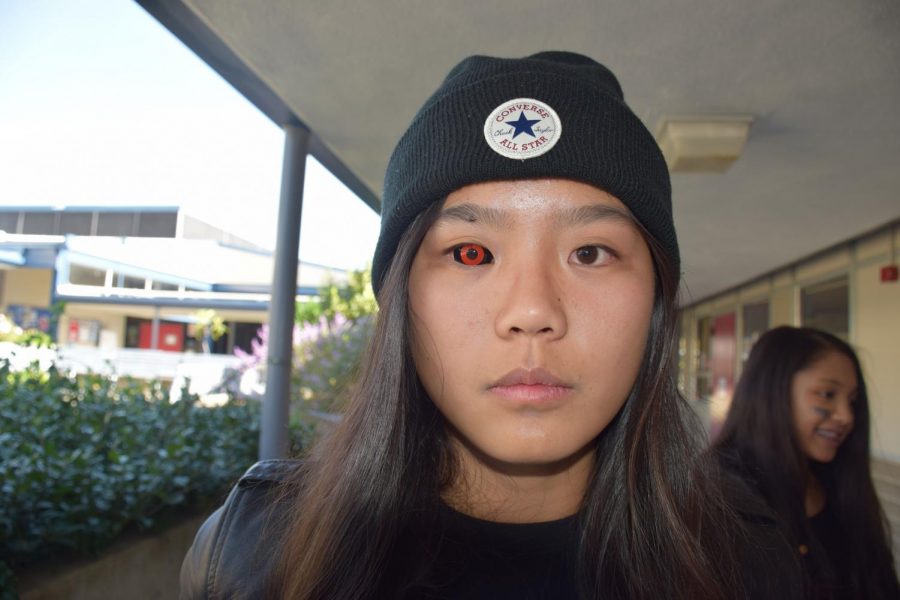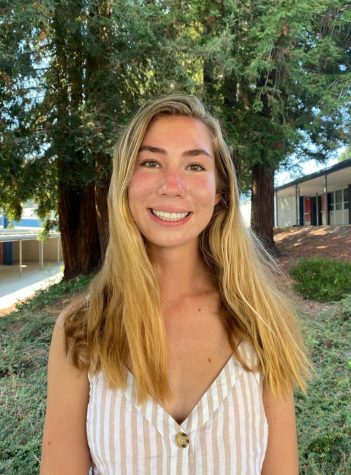Halloween Hangover Needs School Respite
November 26, 2018
It’s the day after Halloween, and all you want to do is stay in bed and sleep off the epic stomachache caused by an overindulgence of candy. Unfortunately, the familiar ring of your alarm clock reminds you that it’s time to rise and grind for school. You struggle through the day, half-listening to teachers as they fruitlessly attempt to educate you.
This aftermath is no fun for anyone, but what if there was a better way? If there was no school the day after Halloween, students could catch up on some much-needed rest instead of wasting their remaining energy trying to get through the school day with even less motivation than usual.
Although teenagers are (debatably) “too old” for trick-or-treating, many still enjoy staying up late to binge-watch scary movies and have a spookily good time with their friends, as well as passing out candy at their respective houses.
Much like New Year’s Eve, Halloween is often spent merry-making late into the night. However, unlike New Year’s Eve, Halloween does not have a day afterward to allow people to recover.
The aftermath of this excessive celebration is detrimental to students’ ability to concentrate in class the next day. Of course, teens could always be responsible and take it easy Halloween night, but let’s be honest: that’s not going to happen.
Students’ lives these days are so controlled and structured that they need a day off where they can blow off some steam. According to The Lamorinda Weekly, “Over 62% of Acalanes High School students agree that academic expectations are high and cause too much stress.”
This shows how badly students need not only a day where they can let loose but also a day where they can catch up on their work and feel less stressed. It would also provide seniors with some much-needed time, as the deadline for many early action college applications is November 1.
Having school the day after Halloween is not only painful for students, but it can be frustrating for teachers, too. Trying to reach students through the sugar haze is a waste of energy, as many students are either bouncing off the walls from excess sweets or trying their best not to fall asleep on their desks.
If students got the day off after Halloween, they could not only enjoy the popular holiday to the fullest, but they could also use the day to catch up on much-needed rest and other homework assignments.
No school on November 1 would also be beneficial for teachers, as they could actually spend the day in a productive way. For example, the Orinda school district has November 1 conveniently marked as a Staff Development Day, so the kids don’t attend school.
In addition, many people forget that November 1 was originally the real holiday, not Halloween. If you look at the origins of Halloween, it is actually the eve of a different holiday: All Saints Day, designated by Pope Gregory III in the 8th century. All Saint’s Day is dedicated to the saints of the Catholic Church and all souls who have made it to heaven.
It is actually considered one of the holiest holidays on the Christian calendar, and many still celebrate it today.
It’s even a national holiday in countries such as Chile, France, Hungary, Italy, Poland, the Philippines, and Spain. Halloween, or “All Hallow’s Eve”, is simply a pre-game to All Saint’s Day, meant for warding off any mischievous spirits. It would be like celebrating Christmas Eve more than Christmas itself.
In addition to All Saint’s Day, November 1 is also referred to as “Día de los Inocentes”, or “Day of the Innocents.” This holiday is less well-known than it’s counterpart, “Dia de los Muertos”, or “Day of the Dead”, but both celebrations are prominent parts of Latin American culture nevertheless. During the days of the dead, families take the opportunity to honor their dead ancestors and celebrate their lives, as it is considered disrespectful to mourn.
Having the day off after Halloween would be beneficial for both students and teachers, and it would also pay respect to an extremely ancient and under-rated tradition.


